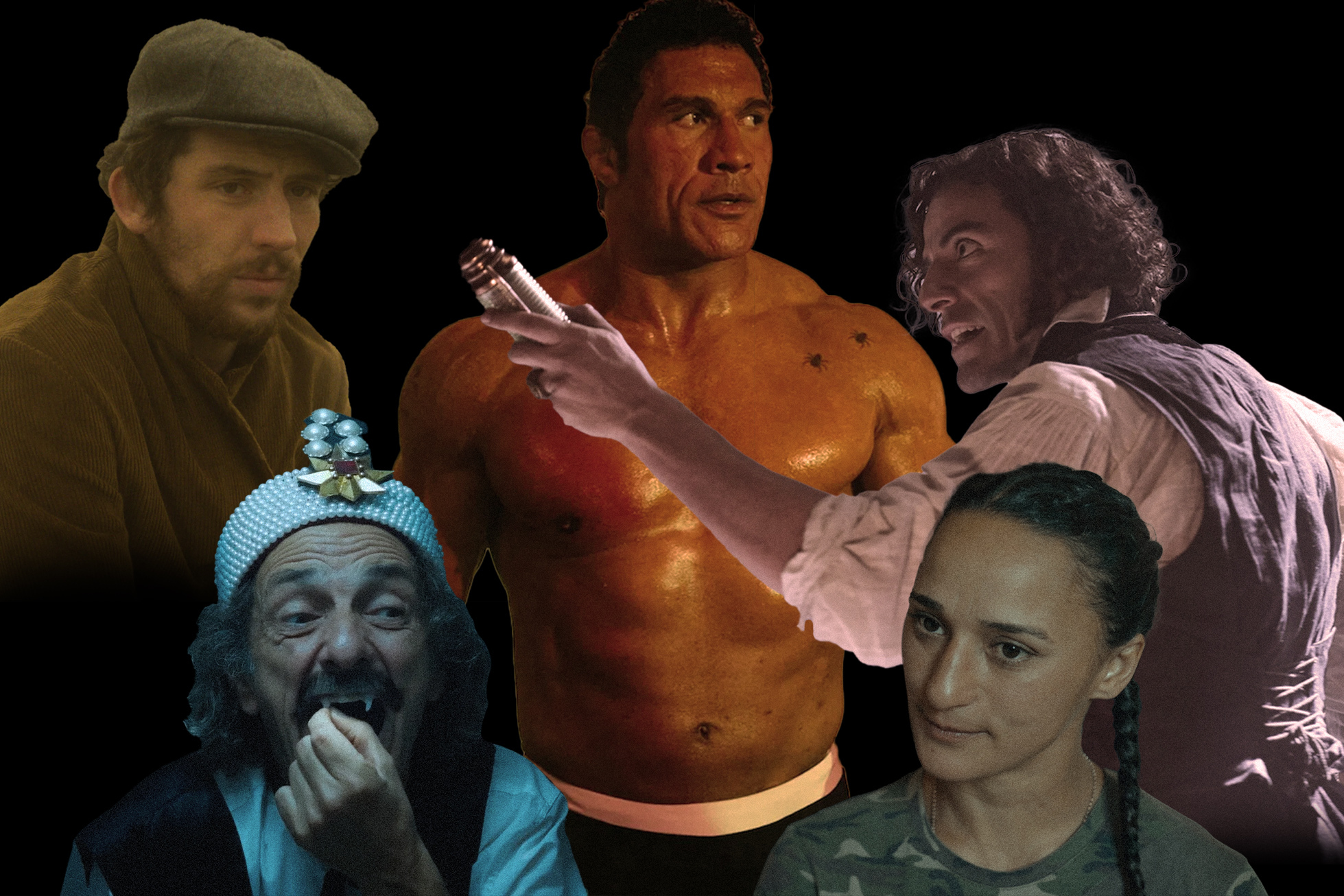
October is my favorite movie month, but not because of new releases.
I watch as many horror movies as time allows in the lead-up to Halloween, favoring titles that have eluded me for one reason or another while throwing in a few classics for good measure. I didn’t watch as many as I would have liked this year, not that I ever do, but at least October’s new releases proved worthwhile — and, in several cases, seasonally appropriate. I had an unusually difficult time choosing which movies to cover this month, which is a good problem to have.

There Was, There Was Not takes its title from the Armenian equivalent of “once upon a time,” a storytelling device that, like much of the country’s history, is inherently melancholic. In recent years that has been especially true of Artsakh, an Armenian enclave whose roughly 120,000 residents were violently displaced by Azerbaijan in an act of ethnic cleansing that echoed the Armenian Genocide. Emily Mkrtichian’s elegiac documentary follows four women who, as her narration puts it, “live in a place that no longer exists”: a candidate for local office, a landmine defuser, the founder of Artsakh’s only women’s center, and a judoka with Olympic aspirations. “Strength of spirit is when it hurts and you want to run away but you say no, I will overcome this, I will enjoy this pain,” says Sose, the martial artist whose dreams of a gold medal are dashed when she’s forced to join the front lines as a soldier.
That resiliency is on full display throughout Mkrtichian’s film, as is a growing despair once reality sets in across the region’s lush, rolling hills. What happened to Artsakh is not unlike the ongoing situations in Ukraine and Gaza, but only received a fraction of the international attention — making There Was, There Was Not an especially vital document of a place that, like far too much of Armenia’s rich cultural tapestry, can only be referred to in the past tense.
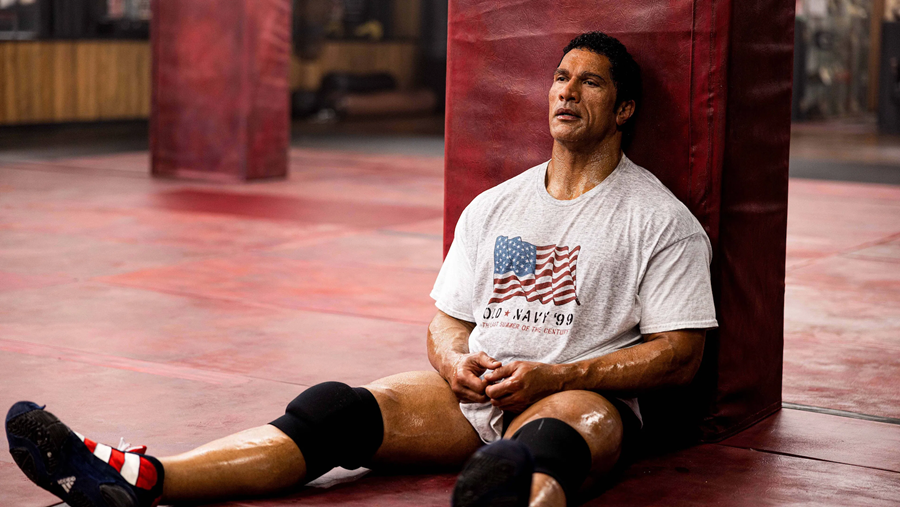
When we first meet The Smashing Machine’s title character, the UFC star has never lost a fight and can’t even imagine what it would be like. Something of a gentle giant outside the octagon, Mark Kerr — an actual MMA innovator from the late ‘90s played by a never-better Dwayne Johnson — thinks his violent vocation “should bother a lot of people” and bears no animosity toward his opponents. So why do it? Because winning is the highest high there is, and the fact that he’s never experienced the agony doesn’t seem to lessen the ecstasy. Nearly unrecognizable under prosthetics, Johnson delivers a powerful performance that both plays into and subverts his carefully crafted public image. For his admirable efforts, he was rewarded with the worst box-office opening of his career.
“You can’t win them all” is as true of movie stars as it is of cage fighters, something Kerr likewise learns the hard way. The Smashing Machine is more straightforward and less anxiety-inducing than the prior work of director Benny Safdie, all of which has been made with his brother Josh until now; Josh’s own solo debut, Marty Supreme, is out on Christmas day. But despite its attempt to be more akin to Raging Bull than Rocky, this is still a fairly pedestrian sports drama. For all his physicality and hulking presence, Kerr is more interesting and relatable outside the octagon, where he’s allowed to ponder the most pressing question on any fighter’s mind: “Am I going to hurt him before he hurts me?”
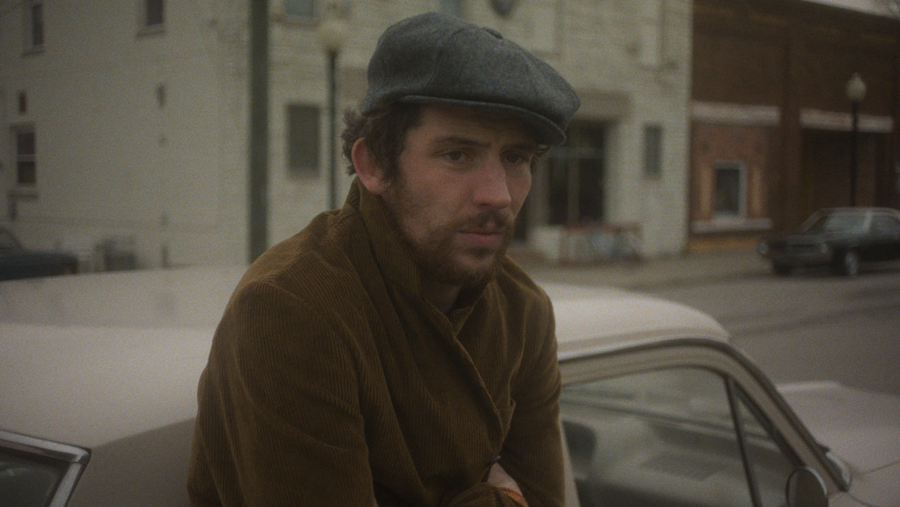
“Mastermind” isn’t the first word that comes to mind when thinking of JB Mooney, a between-jobs carpenter who has the bright idea of filling the gap by robbing a local art museum. This being a Kelly Reichardt movie, any expectations you might have about where that premise will lead are almost certain to be dashed. JB, played by Josh O’Connor of Challengers and La Chimera, is clearly intelligent; he’s also clearly in over his head, with his father (Bill Camp) acting as an audience surrogate when, upon hearing about the robbery on the news, says he’s “not entirely convinced they’ve thought this through.” With no choice but to go on the lam, JB becomes an accidental drifter across 1970s Massachusetts and Ohio in search of a way out of the hole he’s dug himself into.
The Mastermind is itself a kind of drifter, rarely hitting the plot points we’ve come to associate with an ostensible caper while moving to a quietly compelling rhythm all its own. There’s never much urgency to his exit strategy, especially when contrasted with frequent news reports seen in the background about the war in Vietnam he’s blissfully avoided (or has he?), just the inescapable sense that his situation is, well, inescapable. With minimal dialogue and a wall-to-wall jazz soundtrack, Reichardt is once again putting down something that not everyone will be inclined to pick up. But anyone who’s seen her prior movies, like Meek’s Cutoff and Certain Women, will know that she always rewards our patience — even if she rarely rewards her characters’ bad behavior.
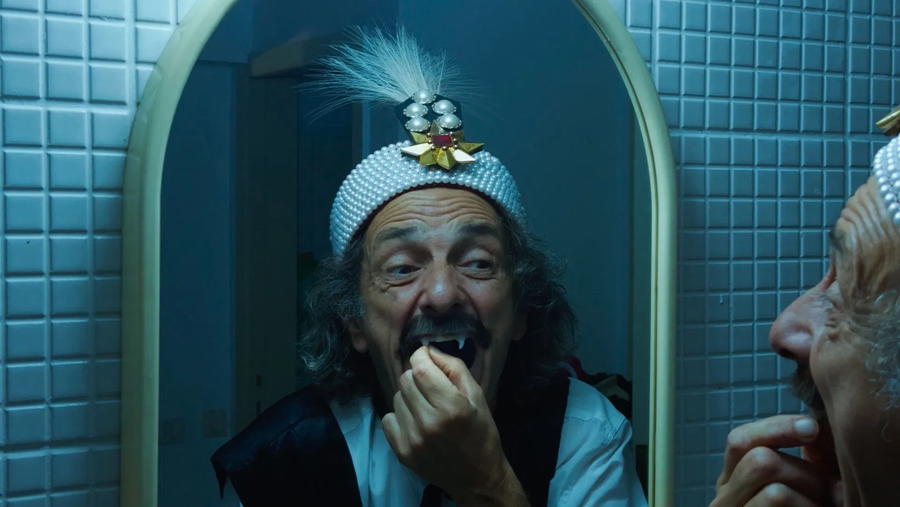
Dracula may not be Radu Jude’s best film, but at least it’s his longest. The allure of a vampire movie by the Romanian provocateur responsible for last year’s era-encapsulating Don’t Expect Too Much From the End of the World is self-evident, not least because Vlad the Impaler was himself Romanian, but Dracula is only partially about Dracula. It follows a filmmaker struggling to make a vampire movie of his own and turning to generative artificial intelligence for help because he has neither the funds nor the talent to do so himself. The logic behind using AI to point out that most of its practitioners are likewise creatively bankrupt is debatable; it’s also typical Jude, whose movies often feel like middle fingers directed at whatever’s caught his attention at the time.
Jude is both the kid in the back of the class blowing spitballs and the one who aces every test without trying. That’s part of his charm — Don’t Expect Too Much really did capture what’s wrong with the world today better than just about any other recent film — but it’s also limiting. After nearly three hours of his latest, you might feel that all you needed to get the gist is the first line, which is repeated a dozen times by a variety of AI bloodsuckers: “I am Vlad the Impaler Dracula, you can all suck my cock.”
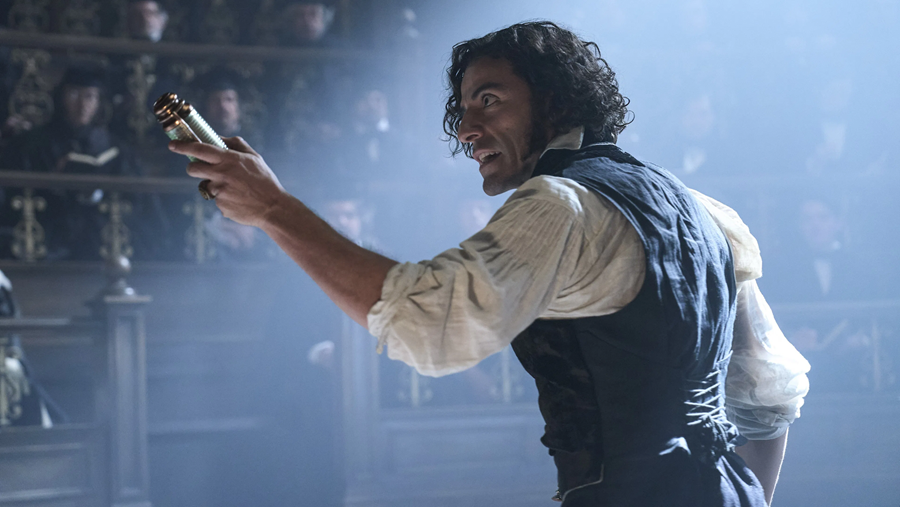
Like a certain mad scientist’s most (in)famous creation, Frankenstein is uniquely compelling in a way that only a mishmash of familiar parts can be. Guillermo del Toro has made no secret of his lifelong ambition to tell his version of the tale first written by Mary Shelley and most famously adapted for the screen by James Whale. The wait was worth it, as this ranks among his best, most emotionally charged movies — as well as the best Frankenstein picture in about 90 years, not that most of the sequels, remakes, and spinoffs since the franchise-best Bride of Frankenstein have been anything to write home about. This new monster of a movie is twice as long as the 1931 version, with the extended runtime attributable to a long chapter that sheds light on how the man who made a monster became a monster himself.
Victor Frankenstein’s origin story is familiar — after suffering a tragic loss, he seeks to conquer death — but poignantly rendered by Oscar Isaac nevertheless. Del Toro’s unparalleled ability to elevate pulp to prestige by imbuing his creations with genuine pathos is on full display, an effort aided greatly by Jacob Elordi (as the creature) and Mia Goth (as a kinda-sorta Bride stand-in). “There’ no spiritual content in tissue,” Victor’s domineering father tells him early on, “no emotion in muscle.” Del Toro would disagree. Of all the parts that went into this tragic creation, he compels us to wonder, which one contains the soul?